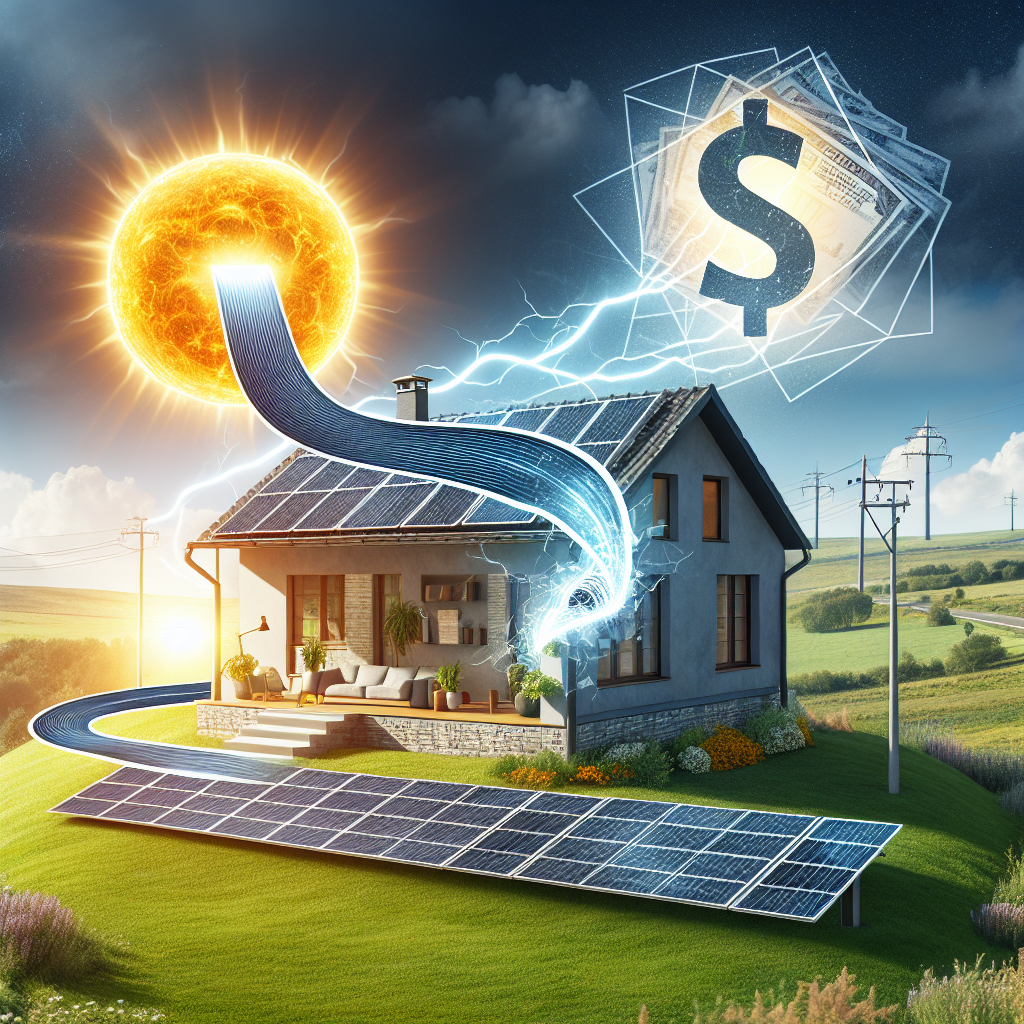In a world increasingly driven by technology and innovation, solar energy has emerged as an efficient and sustainable solution for managing electricity costs. If you’re tired of skyrocketing electric bills and seeking a greener alternative, harnessing the sun’s power might be your answer. This article explores how solar energy can not only cut your electricity expenses but also contribute positively to the environment.
Understanding Solar Energy
What is Solar Energy?
Solar energy is harnessed from the sun’s radiation and is one of the most abundant energy sources available on Earth. Solar panels, typically installed on rooftops, convert sunlight into electricity through photovoltaic cells. This clean energy source can power your home, and any excess can often be fed back into the grid for credit.
Why Solar Energy?
In addition to its economic benefits, solar energy is a renewable resource that contributes to the reduction of greenhouse gas emissions. As concerns over climate change grow, many homeowners are shifting to solar to lessen their environmental impact while also enjoying cost savings.
How Solar Panels Work
Photovoltaic Technology Basics
Solar panels consist of many individual cells made from silicon, which generate electricity when exposed to sunlight. This process involves two layers of silicon that create an electric field. When light particles hit the cells, they knock electrons loose, leading to the flow of electricity.
Installation and Maintenance
Installing solar panels typically involves evaluating your roof’s orientation, angle, and exposure to sunlight. Once installed, solar energy systems require minimal maintenance, with periodic cleaning recommended to remove dirt and debris. Most systems come with warranties that can last up to 25 years, ensuring long-term functionality.
The Financial Benefits of Solar Energy
Reducing Your Electric Bill
One immediate benefit of solar energy is the significant reduction in monthly electric bills. By generating your electricity, you can decrease your reliance on your utility provider. In many cases, homeowners report savings of 50-70% on their electricity costs after installing solar panels.
Tax Incentives and Rebates
In addition to savings on your electric bill, many governments offer tax incentives and rebates for homeowners who invest in solar energy. In the United States, the Federal Solar Tax Credit allows homeowners to deduct a percentage of their solar installation costs from their federal taxes. Many states also have their own incentives, making solar energy more accessible than ever.
Increase in Property Value
Several studies show that homes equipped with solar energy systems tend to sell at a premium compared to those without. This means that not only are you saving money while living in your home, but you’re also investing in a property that will likely appreciate in value.
Environmental Impact of Solar Energy
Reducing Carbon Footprint
By opting for solar energy, you’re taking a proactive step toward reducing your carbon footprint. Solar energy systems produce clean electricity with no emissions, which helps combat climate change and preserves the environment for future generations.
Contribution to Renewable Energy Goals
Investing in solar energy helps support a shift toward renewable energy sources. By harnessing the sun’s power, you contribute to global efforts to utilize cleaner energy and reduce dependence on fossil fuels.
Choosing the Right Solar System
Evaluation of Your Energy Needs
To maximize the benefits of solar energy, it’s crucial to assess your energy needs. An energy audit can help identify your consumption patterns, allowing you to choose the right size and type of solar system for your home.
Working with Professionals
Engaging with a reputable solar installation company is essential to ensure you get the best system for your needs. Professionals can guide you through the process, from evaluating your home’s solar potential to understanding financing options.
Exploring Financing Options
Many homeowners worry about the initial costs of solar installation. However, various financing options are available, including loans, leases, and power purchase agreements (PPAs). These strategies allow you to tailor your investment according to your financial situation.
The Future of Solar Energy
Technological Advancements
The field of solar energy is rapidly evolving, with new technologies enhancing efficiency and reducing costs. Innovations such as solar batteries and smart inverters allow homeowners to store excess energy for nighttime use or power their homes during outages.
Community Solar Programs
For those unable to install solar panels on their roofs, community solar programs offer a solution. These initiatives allow multiple households to benefit from a shared solar array, providing access to solar energy without the need for individual installation.
Conclusion
Harnessing the power of the sun is no longer a distant dream—it’s a feasible and sensible solution for homeowners looking to slash their electric bills while contributing to a more sustainable future. By investing in solar energy, you can enjoy long-term financial savings, reduce your carbon footprint, and increase the value of your home. As the world embraces renewable energy, there has never been a better time to consider making the switch to solar. Embrace the sun, uncover the benefits, and watch your electric bills dwindle away!


